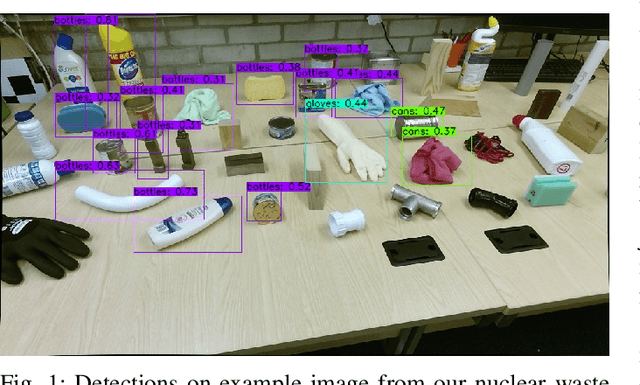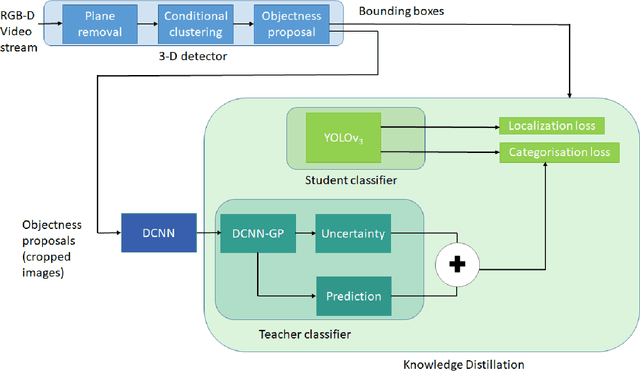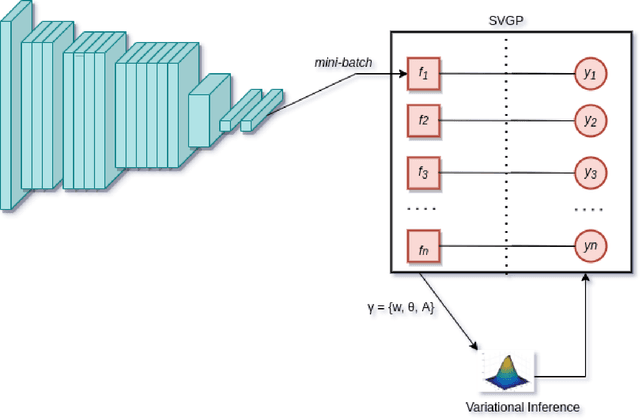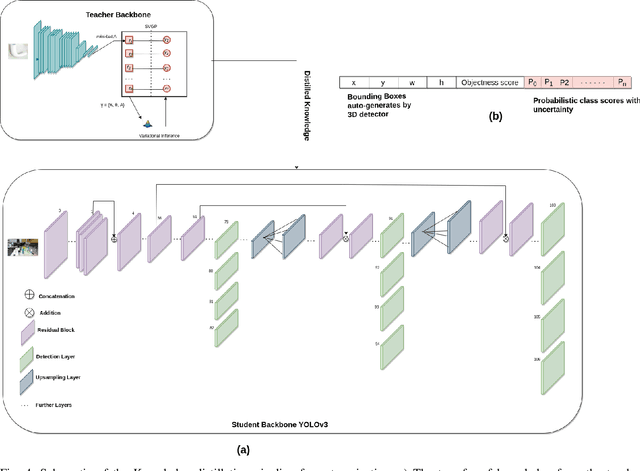Alireza Astegarpanah
Self-supervised cross-modality learning for uncertainty-aware object detection and recognition in applications which lack pre-labelled training data
Nov 05, 2024



Abstract:This paper shows how an uncertainty-aware, deep neural network can be trained to detect, recognise and localise objects in 2D RGB images, in applications lacking annotated train-ng datasets. We propose a self-supervising teacher-student pipeline, in which a relatively simple teacher classifier, trained with only a few labelled 2D thumbnails, automatically processes a larger body of unlabelled RGB-D data to teach a student network based on a modified YOLOv3 architecture. Firstly, 3D object detection with back projection is used to automatically extract and teach 2D detection and localisation information to the student network. Secondly, a weakly supervised 2D thumbnail classifier, with minimal training on a small number of hand-labelled images, is used to teach object category recognition. Thirdly, we use a Gaussian Process GP to encode and teach a robust uncertainty estimation functionality, so that the student can output confidence scores with each categorization. The resulting student significantly outperforms the same YOLO architecture trained directly on the same amount of labelled data. Our GP-based approach yields robust and meaningful uncertainty estimations for complex industrial object classifications. The end-to-end network is also capable of real-time processing, needed for robotics applications. Our method can be applied to many important industrial tasks, where labelled datasets are typically unavailable. In this paper, we demonstrate an example of detection, localisation, and object category recognition of nuclear mixed-waste materials in highly cluttered and unstructured scenes. This is critical for robotic sorting and handling of legacy nuclear waste, which poses complex environmental remediation challenges in many nuclearised nations.
 Add to Chrome
Add to Chrome Add to Firefox
Add to Firefox Add to Edge
Add to Edge